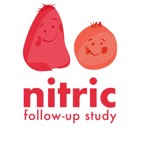Children’s Intensive Care Research Program - Research projects
Our current research projects include:
Resuscitation in Paediatric Septic Shock using Mega-Dose Vitamin C and Hydrocortisone - A Randomised Controlled Multicentre Trial
 RESPOND Study; Funded by Children’s Hospital Foundation, Financial Markets for Children, NHMRC
RESPOND Study; Funded by Children’s Hospital Foundation, Financial Markets for Children, NHMRC
Sepsis and serious infections in children are one of the most common reasons for admission to intensive care. Septic shock occurs when there is a significant decrease in the blood pumped to the body.
When children are admitted to hospital with septic shock, they can receive different treatments. These include antibiotics, fluids given through their veins, and medications to support blood pressures (inotropes, steroids, vitamins) and improve blood flow to the organs. This project is assessing the use of hydrocortisone and vitamin C in children with septic shock.
The trial is being conducted in paediatric intensive care units across Australia, New Zealand, Switzerland, India, Brazil and South Korea.
Contact: respond@uq.edu.au
Improving the lives of critically ill children: Clinical trial capacity building in India through the RESPOND Trial
ARCH-India ‘Unnati’ Research Collaboration
Globally, critically-ill children are treated in Paediatric Intensive Care Units (PICUs), where clinical practice is informed by high-quality evidence generated by clinical trials. This project aims to deliver education to Indian paediatric intensive care clinicians on clinical trial methodology through a series of workshops, webinars and site visits. The Resuscitation in Paediatric Septic Shock using Mega-Dose Vitamin C and Hydrocortisone (RESPOND) Trial, a University of Queensland-led clinical trial investigating new treatments for paediatric sepsis, will be used as a case study. This work will ensure Indian hospitals can participate in international clinical trials and enhance their international visibility, ultimately benefitting their sickest children.
Contact: k.gibbons@uq.edu.au
Rapid Acute Paediatric Diagnosis of Infection in Suspected Sepsis
RAPIDS; Funded by MRFF
Sepsis and life-threatening infections are one of the most common reasons for children to present to Intensive Care Units and may even result in death. Some of the biggest challenges in treating sepsis are the time required to obtain the accurate diagnosis of the infection (up to 48 hours), and deciding if and what antibiotics are required for treatment.
The RAPIDS multicentre trial is researching a blood test which may provide a test result (i.e., whether a viral or bacterial infection is present) within hours. This involves the use of the most modern tests to assess gene expression in children with a suspected infection as gene-sequencing based (“genomics”) sepsis diagnosis is likely superior to traditional infection testing.
It is the aim of this research to assess whether this new technology could become a standard of care in the future. This would result in faster detection of sepsis and therefore, more timely and efficient treatment of infections, reducing the unnecessary use of antibiotics.
Contact: paedsepsisresearch@uq.edu.au
Rapid Personalised Diagnosis of Sepsis in Children
Funded by PHRT, ETH Domain [Switzerland]
Sepsis is a leading cause of death and disability in children, accounting for an estimated 3 million deaths in children worldwide every year. A major limitation in paediatric sepsis management is the delay in obtaining accurate diagnosis because children with sepsis initially often have symptoms akin to common and mild viral illnesses. Therefore, fast, and reliable diagnosis of sepsis is a major unmet clinical need. Improved diagnostic strategies have great potential to result in better patient outcomes, lower costs, and less inappropriate antimicrobial usage.
Thanks to rapid omics technology, discriminative patterns of host responses to infection can now be tested systematically at transcriptomic, proteomic, and metabolomic levels. These technologies carry huge potential to unravel biological mechanisms underpinning sepsis and to enable discovery of novel biomarkers which can be implemented at the bedside in the future.
This study aims to improve the diagnosis of sepsis through host proteomics and metabolomics. We will build on the unique prospective cohort of critically ill children presenting acutely with suspected sepsis to hospital. Building on our discovery of host gene expression signatures characterizing dysregulated host response to bacterial infection, we will characterize the metabolome and proteome in this high-quality cohort and search for biological phenotypes associated with sepsis. Specifically, we will assess involved pathways leading to severe disease defined by the degree of organ dysfunction, in children with bacterial versus viral infection, compared to non-infected controls. Using machine learning on the multi-omics dataset, we aim to derive novel phenotypes, and subsequently derive signatures characterizing selected disease states of high clinical and prognostic relevance.
Contact: paedsepsisresearch@uq.edu.au
Gene Expression to Predict Long-Term Outcome in Infants After Heart Surgery
 The NITRIC Follow-up Study; Funded by MRFF
The NITRIC Follow-up Study; Funded by MRFF
Each year, over 1000 children with childhood heart disease (CHD) in Australia require heart surgery. The short and long-term outcomes of these children are determined by the impact of the surgical intervention, the response to cardiopulmonary bypass (CPB), and the direct consequences thereof during their intensive care stay. Neurodevelopmental disabilities remain amongst the most common, and the most damaging, adverse outcomes in children undergoing heart surgery.
One out of four infants undergoing heart surgery develop a harmful response to CPB, which leads to low cardiac output syndrome (LCOS). LCOS results in prolonged (multi-) organ dysfunction and adverse short-term outcomes which can manifesting into poor outcomes at school age. Currently, we do not possess reliable, sensitive, and rapid predictors for LCOS or adverse early and long-term outcomes. Preventive strategies to reduce LCOS remain of limited effectiveness.
We hypothesise that gene expression transcripts identify the harmful response to CPB, which leads to LCOS and prolonged severe organ failure post heart surgery in infants. The combination of transcripts will yield a signature allowing rapid discrimination of patients who will progress to LCOS and adverse outcomes. We will assess both short- and long-term outcomes manifesting into school age. This can ultimately enable the development of biomarkers for point of care testing.
Contact: nitricmrff@uq.edu.au
Restrictive vs Standard Fluid Management in Mechanically Ventilated Children Admitted to PICU - a Pilot Randomised Controlled Trial
 REDUCE; Funded by Children’s Hospital Foundation
REDUCE; Funded by Children’s Hospital Foundation
The provision of intravenous fluids is a key component of treatment for a variety of conditions within the paediatric intensive care unit (PICU). However, there is currently a lack of evidence regarding the appropriate amount of fluid that should be administered to critically ill children. Excess fluid causes oedema which can impede oxygen delivery to cells and as such, result in the escalation of respiratory support as well as increase length of PICU stay. The REDUCE trial is aiming to assess whether administering a safe restricted volume of intravenous fluids will assist in achieving better outcomes in comparison to a liberal approach to fluid management.
Contact: sainath.raman@uq.edu.au
Machine Learning in the Paediatric Intensive Care Unit: Development of Risk Prediction Models
MELODY; Funded by Ramaciotti Foundation
Precision medicine—a method of tailoring the treatment approach for the patient by accounting for individual variability—is the future of healthcare. Clinical trials of precision medicine approaches have demonstrated that such an approach can improve clinical outcomes. In the Paediatric Intensive Care Unit (PICU), it is well documented that there is a paucity of high-quality evidence for paediatric critical care interventions and therapies—the sickest children are often excluded from high quality trials, and by consequence are exposed to suboptimal treatment. To date, there has been minimal use of the data rich PICU environment to boost the generation of knowledge at the individual level. Recently, thanks to breakthroughs in the application of computational science in health, the promise of embedded data algorithms to assist clinical decision making is becoming clear. Using advanced machine learning techniques, this project will develop a dynamic risk prediction model for early detection of patient deterioration using extensive, high-resolution data from >32,500 patient admissions across three large PICUs (Brisbane, Melbourne, and Zurich). The provision of resultant targeted treatments will increase the quality of life for children and their families who experience a PICU admission, reducing mortality and the impact of neurodevelopmental sequelae for PICU survivors.
Contact: k.gibbons@uq.edu.au
Assessing school readiness outcomes in young children admitted to the pediatric intensive care unit using machine learning and population-based registry data in Queensland, Australia
STAR-PICU; Funded by the ZOLL Foundation
Critically ill children around the world receive life-saving care in Pediatric Intensive Care Units (PICUs). But, 1 in 3 PICU survivors will have ongoing problems with the way they move, learn, think and feel after their ICU admission. For children under five, these problems can impact their developing brain, affecting schooling and causing problems into adulthood. Identifying how to change the care in the ICU can ensure we give children the best chance to reach their full potential. This research will use machine learning to understand what parts of PICU care affected the developmental outcomes of over 2000 PICU survivors in Queensland, Australia, during their first year of school. These results will assist clinicians to create programs to help young PICU survivors thrive at school.
Contact: p.gilholm@uq.edu.au
Machine Learning to predict future educational outcomes in critically ill children
Funded by the Children’s Hospital Foundation
Over 10,000 children in Australia require life support for critical illness every year. While most children survive, the impact on long-term cognitive and functional outcomes remains poorly understood. We have successfully linked intensive care admission data of the past 20 years with standardised school testing and administrative databases, to investigate the long-term impact of critical illness. This project involves a novel application of data science approaches to this unique data set capturing health and educational trajectories in a large cohort of Queensland children who had critical illness before age five. We will use machine learning techniques to build and test a predictive model to identify, at time of hospital discharge, children at risk of poor educational outcomes in the future. We will for the first time explore the integration of this approach with prospective clinical data. The innovative study will provide urgently needed evidence to guide families, practitioners, and researchers.
Contact: k.gibbons@uq.edu.au
Building together: Better consenting practices for the most vulnerable in healthcare research
 Funded by Metro South Research Support Scheme
Funded by Metro South Research Support Scheme
Every year more than 200,000 babies, children and adults are admitted to hospital intensive care units (ICUs) in Australia and New Zealand, where they receive care because they are extremely sick. Almost 15,000 of these patients die, and thousands more leave the ICU with ongoing medical problems. Research is desperately needed to find new treatments to help these patients survive their hospital admission and regain their quality of life. One of the most important aspects of conducting research is ensuring the patient, or their family/carer, understands the research project and can provide informed consent before treatment starts. However, an admission to ICU is often one of the most stressful times in a patient’s, and their families, lives, and the added decision to participate in research can be extremely challenging and sometimes distressing. To deliver potentially new life saving treatments, and make sure obtaining consent does not add extra burden to patients and families, clinicians and researchers are now allowed to start some research treatments before obtaining consent, and ask for consent when the patient is in a more stable condition; this is called ‘delayed consent’. The acceptability of this approach—obtaining consent after treatment has started—for patients, carers, and clinicians, may be limited. It has been reported that many patients are surprised to learn it was possible for consent to be sought after treatment was delivered, and clinicians were apprehensive to ask for consent in this situation. Research is urgently needed to understand how patients and families want to be approached for delayed consent, to develop consent materials that are responsive to the high stress situation of an ICU stay, and support clinicians and researchers to have these difficult conversations.
Contact: k.gibbons@uq.edu.au
